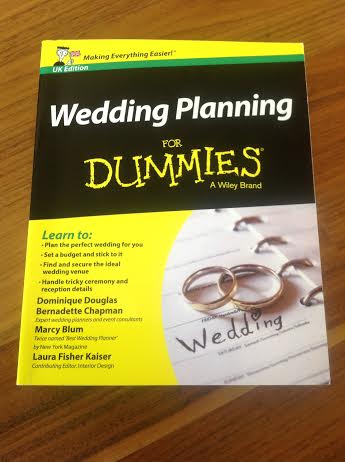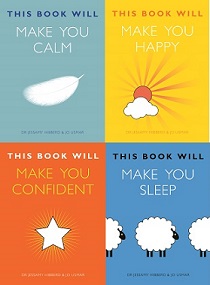 Sugar makes our food tastier, gives us a quick boost of energy, and leaves us feeling great, at least temporarily. But it’s also a highly addictive substance and, when consumed frequently, can have negative effects on our health and well-being, with symptoms ranging from energy dips, a ‘sluggish’ feeling and poor skin, to more severe health problems including obesity, diabetes, premature aging, and many other chronic health conditions. Fat was traditionally blamed for many of these problems, but sugar is now shown to be far more harmful than fat! For this reason, and simply to feel or look healthier, many of us are taking the positive decision to cut out or drastically reduce the amount of sugar in our diets.
Sugar makes our food tastier, gives us a quick boost of energy, and leaves us feeling great, at least temporarily. But it’s also a highly addictive substance and, when consumed frequently, can have negative effects on our health and well-being, with symptoms ranging from energy dips, a ‘sluggish’ feeling and poor skin, to more severe health problems including obesity, diabetes, premature aging, and many other chronic health conditions. Fat was traditionally blamed for many of these problems, but sugar is now shown to be far more harmful than fat! For this reason, and simply to feel or look healthier, many of us are taking the positive decision to cut out or drastically reduce the amount of sugar in our diets.
We enlist the help of Nutritional Therapist, Cassandra Barns, at nutricentre.com to give us The Ultimate 12 Step Sugar-Free programme.
Portion Control
Cassandra advises, ‘Aim for foods that have a low glycaemic load, as their impact on blood sugar level is minimal and you’ll be less likely to experience blood glucose highs and lows that will have you reaching for the cookie jar. Make sure each meal includes protein, non-starchy vegetables and unrefined carbohydrates. Limit sweet tasting veg (parsnips, potato and carrots) and opt for green veg like broccoli and spinach, ideally making up half your plate. Good protein (lean turkey, eggs, fish, beans) are digested slowly and make you feel fuller for longer, carbs should be wholegrain varieties for the same reason.’’
I must not skip breakfast
According to Cassandra, ‘’If we don’t have breakfast, often by 11 am or midday, we become hungry and crave sugar, as our blood sugar levels drop too low. Try two poached eggs on a slice of wholemeal bread with some rocket leaves or a pot of sugar-free yoghurt with nuts and berries.’’
Quit sugar, not snacks
‘’A healthy snack between meals can help while you’re giving up sugar, as it stops your sugar levels dropping too low, which can cause sweet cravings. Good examples include: two oatcakes topped with a tablespoon of humus or guacamole or cottage cheese and half an avocado. Avoid bananas and grapes and opt for berries as they are naturally low in sugar.’’ Cassandra warns.
Limit alcohol
‘’Alcohol raises blood sugar, but being a liquid, it is even more quickly absorbed into the bloodstream than sugar. Alcohol also contains more calories than sugar: 7 calories per gram versus 4 calories per gram! Alcohol binges are a classic way to set up a cycle of cravings for sugary, stodgy foods the day after. Stick to one small to medium glass of wine with a meal once or twice a week’’, advises Cassandra.
Look after your gut
Cassandra explains ‘’Overgrowth of unhelpful yeasts in the gut, such as candida, can contribute to, or exacerbate sugar cravings. Ironically, eating sugar and high-starch foods makes the candida overgrowth worse, so we become stuck in a catch-22 situation. To help solve this, try taking a high-strength, good quality probiotic supplement such as ProVen’s ‘Adult Probiotic 25 Billion’ £12.95 from www.provenprobiotics.co.uk , loaded with friendly bacteria.’’
Go easy on the tea and coffee
Caffeine is a stimulant that causes our body’s stress hormones such as cortisol and adrenaline to be released, which in turn cause a cycle of energy dips and peaks, and make you more likely to crave sugar later on. Decaffeinated coffee and tea contains other stimulants, so try better options such as naturally caffeine free rooibos tea or grain based coffee alternatives.
Consider natural sugar alternatives
Xylitol is a naturally sweet substance found in many plants. In commercial preparations, it is found in granules and looks and tastes like sugar, although slightly less sweet. Stevia is a substance extracted from the leaf of the stevia plant. It is an intensely sweet substance and very little is needed to give a sweet taste – it has very few calories and minimal impact on blood glucose.
Treat yourself
Three squares of good quality dark chocolate (minimum 70% cocoa): this amount will only contain a relatively small amount of sugar, and there is also evidence that dark chocolate has health benefits or try a small pot of sugar-free plain yoghurt, with a teaspoon of pure cocoa or raw cacao powder
Chromium to control cravings
‘Chromium, this trace mineral has a vital role in supporting normal blood glucose levels, and therefore helping to prevent the dips that cause us to crave sugary foods. Try Quest Vitamin’s ‘Chromium Picolinate’ £4.04 from www.questexcellence.com. Take one tablet a day, preferably with breakfast. This supplement also contains vitamin B3, which works closely together with chromium. Chromium can take a month or longer to have its full effect, so persevere or start taking chromium before attempting to give up sugar.’ Cassandra advises
Exercise!
Cassandra stresses ‘’Moderate exercise helps us to feel energised, less sluggish, and healthier. It can help to control stress levels and also support blood sugar control to avoid dips that will induce cravings.’’
Reduce your stress
‘Stress is one of the primary triggers for sugar cravings, as our body is being prepared for physical action (the ‘fight or flight’ syndrome). So try in any way you can to reduce stress, whether it is by delegating or reducing your workload, taking some gentle exercise, or practising yoga or meditation to help you relax. Reduced stress will often mean better sleep as well, which will mean better energy levels the next day.’ explains Cassandra.
Energising vitamins and minerals
According to Cassandra ‘Most of us can benefit from extra support, to prevent tiredness triggering those pesky sugar cravings. B vitamins, vitamin C and the mineral magnesium are particularly important nutrients that are needed to produce energy from the foods that we eat; and we can struggle to get enough of them, even in a healthy diet.’
All supplements mentioned can be found at nutricentre.com. Want to give up sugar for 2014? Got a question that isn’t covered here? NutriCentre offers a free Nutritional Advice helpline manned by a team of highly qualified nutritionists, like Cassandra, ready to answer any natural health questions you may have. Advice line: 0207 436 5122, open Mon-Sat













